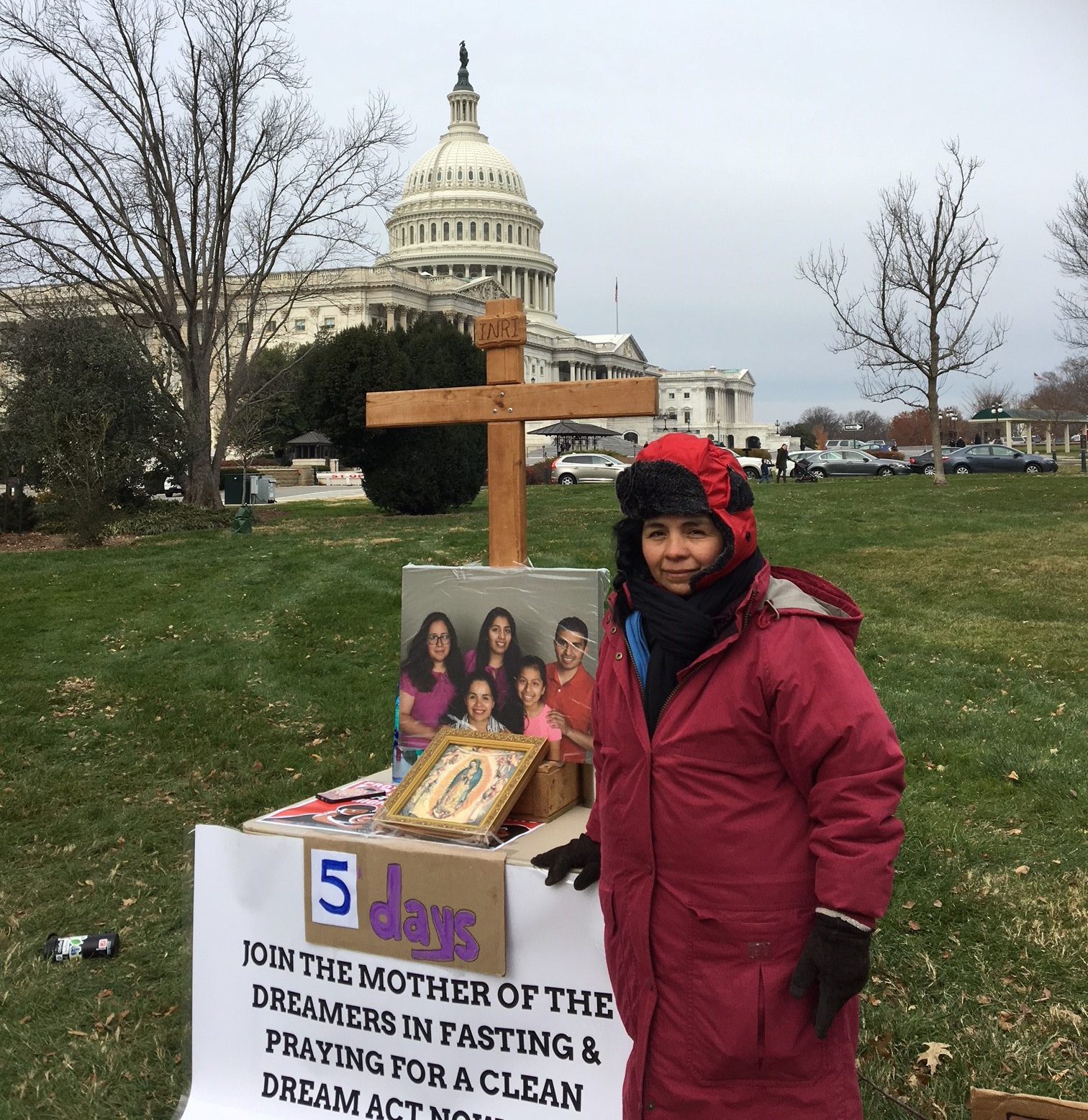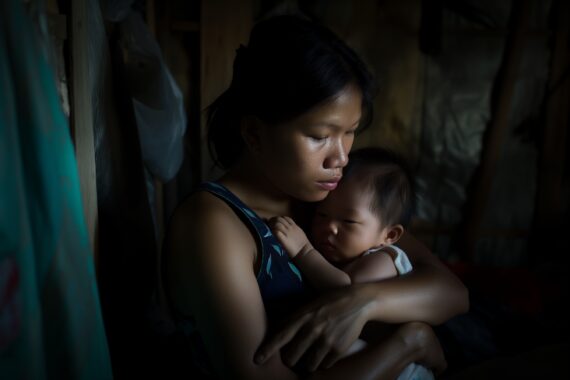By Chase Cabot
In a small park space between the Capitol building and the Supreme Court, a mother fasted earlier this month for 12 days in an attempt to spur Congress to take action on the Deferred Action for Childhood Arrivals (DACA) program.
The program allows “Dreamers”—undocumented young adults brought to the United States at a young age by their parents—to receive work permits and deportation relief. These young adults are currently facing an uncertain future after the Trump administration announced earlier this year that it would end the DACA program in March 2018.
Antonia is the mother of four “Dreamers.” During her fast, she placed a table near the Capitol, across the street from the Longworth and Cannon House Office Buildings, with a picture of her children and a large cross in an attempt to make her struggle more visible to anyone passing by. The cold weather did not intimidate her. She bundled herself up in a massive jacket stretching to her feet and a woolly hat which reached down over her neck.
Antonia had a clear sense of purpose around her protest. “I am here for justice. Justice for myself, my family, and for all the other families,” she said.
She added: “We now have this struggle, because Trump removed DACA. Now we are all in limbo, and while everyone else is celebrating Christmas, I cannot. President Trump and Paul Ryan don’t want me or my kids here. So that is why I am here.”
Antonia has lived in Minnesota for the last 16 years, providing for her children, who are all now adults with careers. She has also engaged with community activism and organizing over the years. She expressed her frustrations with the inactions of Congress.
“I’ve been coming to these offices for 16 years, and nothing ever happens,” she said. “They always say, ‘next year, next year, oh next year.’ For 16 years they’ve been saying this, and they need to take action now.”
During her fast, Antonia was cold and hungry, but she drew strength from many sources to carry on her protest.
“My faith is my hope. People for thousands of years have oppressed other people. But I believe in the power of people speaking up against oppression,” she said. “I see the history of America, I see the history of the slaves, I see the history of Gandhi, and I see how powerful standing up can be. Injustice will not go away unless we take action.”
Chase Cabot is a communications intern at Bread for the World.



